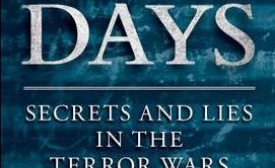middle east
The murder of U.S. diplomats in Libya as an alleged reaction to a YouTube posting brings into focus serious differences in culture and values with many societies in the Muslim world. Acknowledging this fact is an essential step in tackling the gaps in the value of human life and religious symbols.
The notorious tweet reaffirming a statement that condemned "the continuing efforts by misguided individuals to hurt the religious feelings of Muslims" has been deleted by the U.S. Embassy in Cairo, but the incident raises a question that lingers: Is blasting out 140-character messages on Twitter a good way to conduct diplomacy, given the political, and even mortal, risks?
“The death of U.S. public diplomacy” was how one Twitter user last Tuesday described the now-infamous apology from the U.S. embassy in Cairo for the ill-conceived movie Innocence of Muslims. Strong words, but there is no doubt about it: The need for American public diplomacy in the Middle East needs to be rebooted and rethought. But how?
Western embassies across the Muslim world remained on high alert Sunday and the United States urged vigilance after days of anti-American violence provoked by a video mocking the Prophet Mohammad. With protests against the film continuing from London to Lahore, Western diplomatic missions were on edge. Germany followed the U.S. lead and withdrew some staff from its embassy in Sudan, which was stormed Friday.
It’s a free country and Terry Glavin is entitled to rail all he likes against diplomacy, robust and otherwise in his column (“What robust diplomacy gets you,” Sept. 12). But he will not disparage diplomacy and deprecate public servants without challenge. I find offensive his characterizations of Lakhdar Brahimi, Mokhtar Lamani and Paul Dewar, all of whom I know personally.

American efforts to counter the threat of terrorism have spawned their own literary genre. Some of the books are little more than partisan tirades, some give credence to far-fetched conspiracy theories, but others are solidly researched and impart important lessons about fighting evil without demolishing essential national values.
After days of anti-American violence across the Muslim world, the White House is girding itself for an extended period of turmoil that will test the security of American diplomatic missions and President Obama’s ability to shape the forces of change in the Arab world.
In one of his last acts as U.S. ambassador to Libya, Chris Stevens put together a group of Libyan journalists and sent them to the U.S. on a tour of media outlets. A day after receiving news that their friend Stevens was killed by protesters at the U.S. Consulate in Benghazi, the group of seven Libyan reporters and other media professionals visited this newspaper to exchange ideas about journalism in the U.S.







